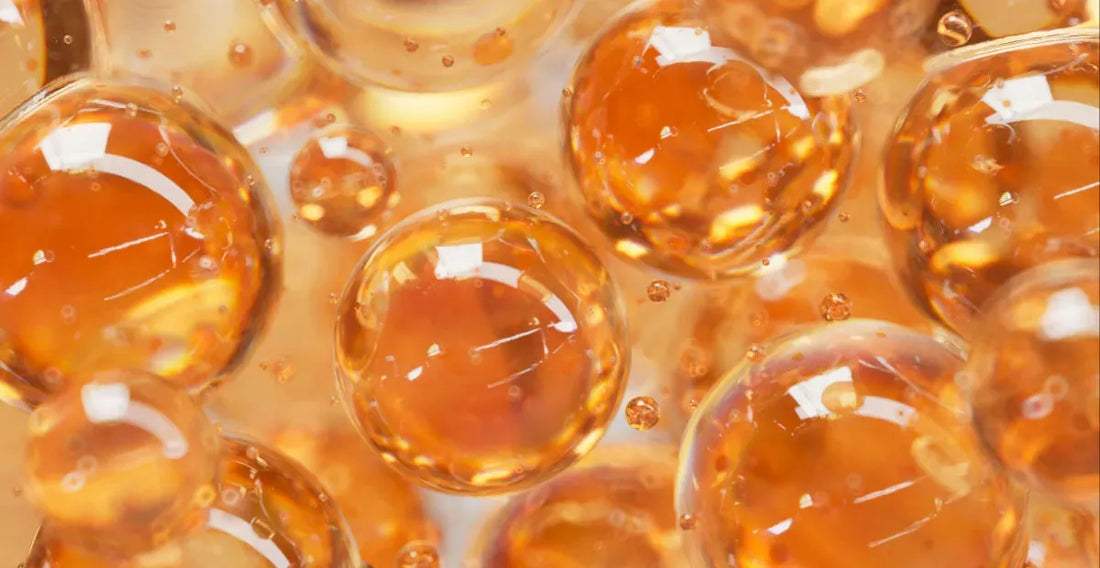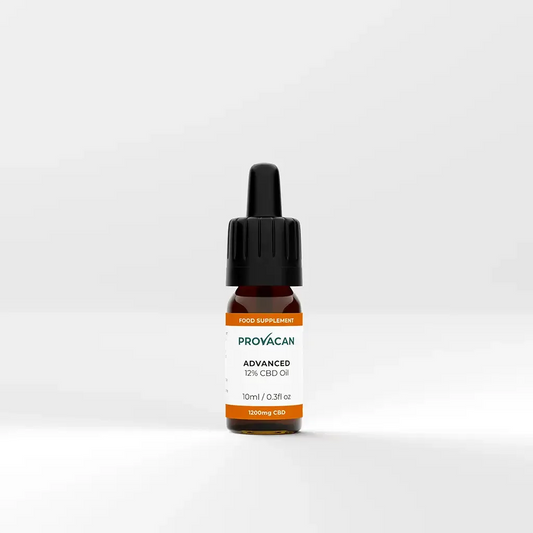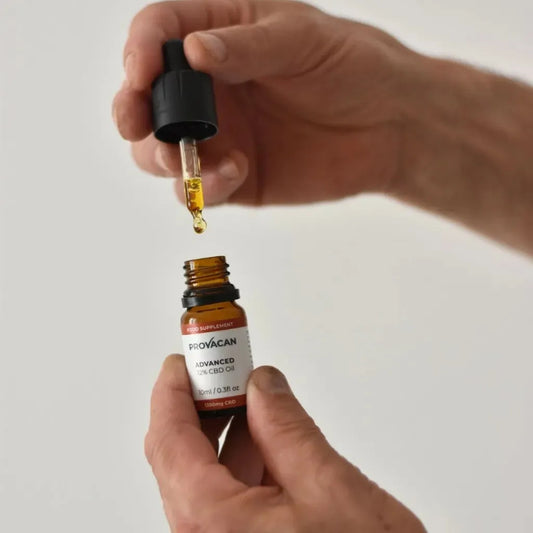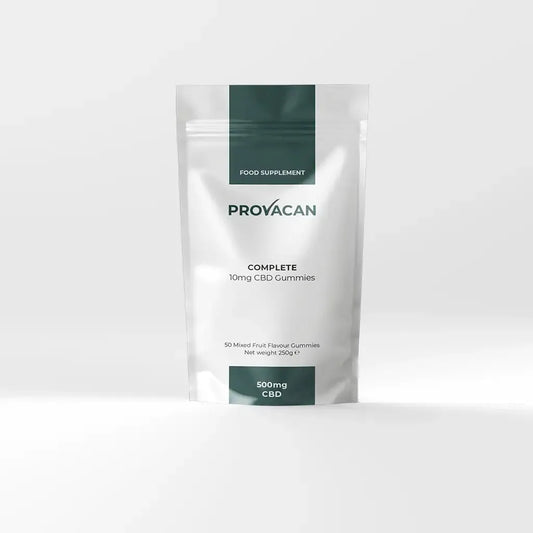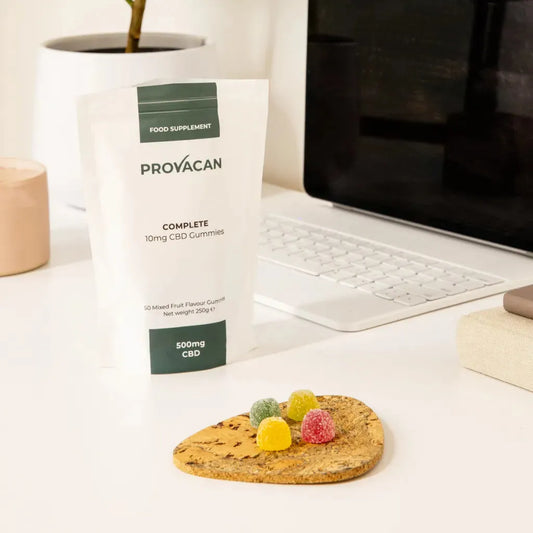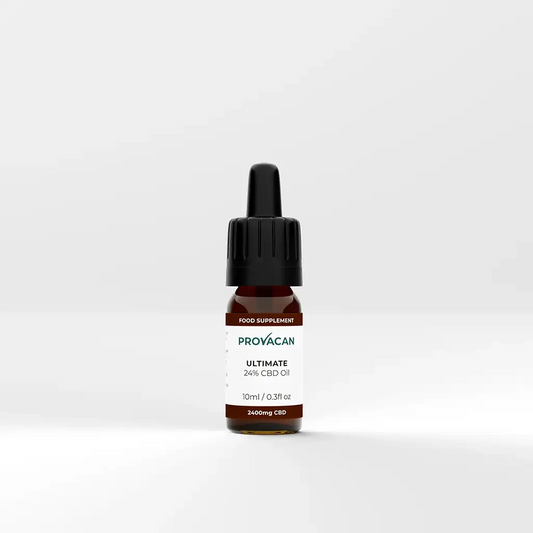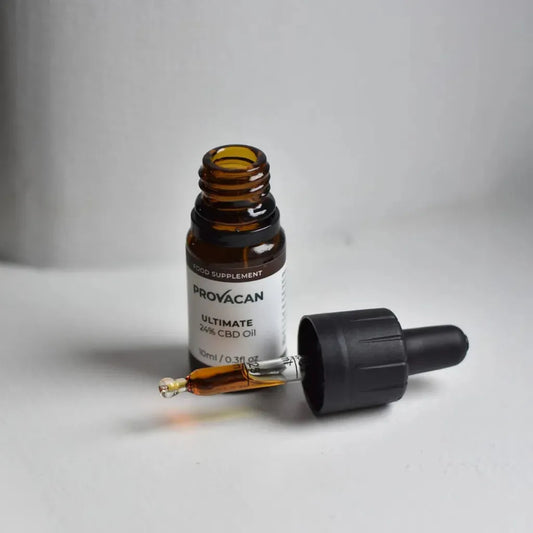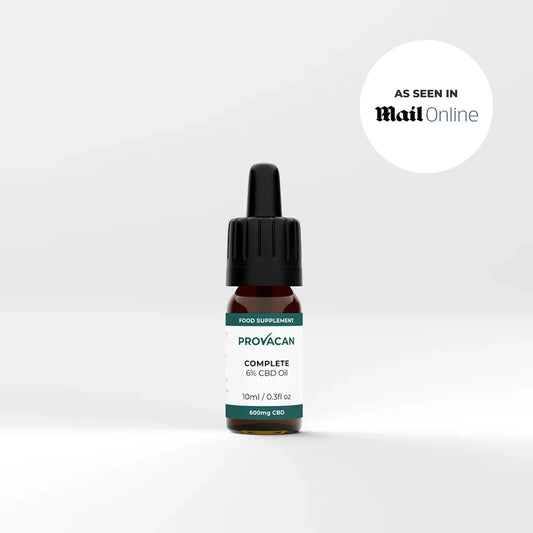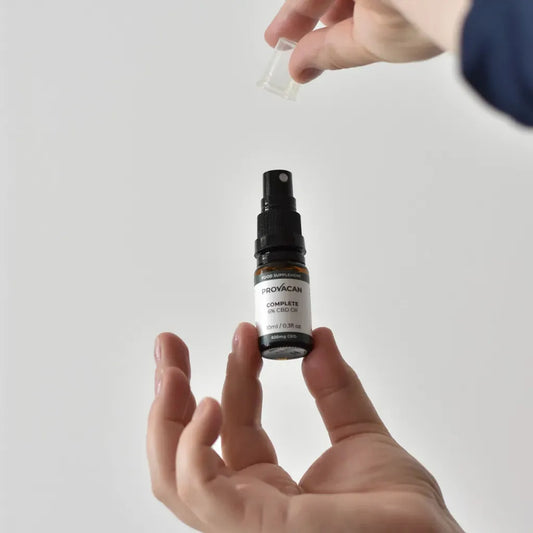Key Takeaways:
- The Risk of CBD Overdose is Very Low: While there are adverse effects of overuse of CBD, the risk of overdose is very low.
- Finding the Right Dosage is Key: As with any medication or treatment, finding the right dosage for your age, size, weight, and tolerance level is key.
- CBD and THC are Very Different: CBD does not have the psychoactive effects of THC, nor does it have the same potential for side effects and overdose.
CBD, short for cannabidiol, has taken the wellness world by storm with its potential health benefits and non-intoxicating properties. As more and more people turn to CBD products for various health concerns, questions about their safety arise. One common inquiry is: can you overdose on CBD?
In this article, we will explore the research and scientific understanding of CBD to determine if an overdose is possible. Provacan, a leading CBD brand known for its commitment to quality and efficacy, will provide expert insights and information on this important topic.
As we take a look at the potential risks of CBD use and relevant studies, it's essential to separate fact from fiction. Understanding the dos and don'ts of CBD consumption is crucial for ensuring your well-being and making informed choices about your health and wellness routine.
Join us on this journey to uncover the truth about CBD overdose and learn how to incorporate this popular cannabinoid into your daily wellness regimen safely and effectively.
Exploring The Therapeutic Effects Of CBD
CBD, short for cannabidiol, has been a topic of growing interest in the wellness and healthcare industries due to its potential therapeutic benefits. Research suggests that CBD interacts with the body's endocannabinoid system, which plays a crucial role in regulating various physiological and cognitive processes.
Several studies have shown that CBD may have anti-inflammatory properties, making it a promising option for conditions characterized by inflammation, such as arthritis. In addition, CBD has been linked to potential pain-relieving effects, making it a valuable alternative for individuals seeking natural pain management solutions.
Furthermore, emerging research indicates that CBD may offer benefits for anxiety and stress-related disorders. Some studies suggest that CBD has anxiolytic properties, meaning it may help reduce feelings of anxiety and promote relaxation without the psychoactive effects associated with THC. Moreover, CBD has shown potential in the treatment of certain neurological disorders, including epilepsy.
It's worth noting that while CBD shows promise in various areas, more research is needed to fully understand its mechanisms of action and potential applications. As with any supplement or medication, it's essential to consult with a healthcare professional before incorporating CBD into your wellness routine, particularly if you are taking other medications or have underlying health conditions.
Establishing The Dosage: How Much Is Too Much?
Determining the right dosage of CBD is crucial for enjoying its potential benefits without experiencing any adverse effects. While CBD is generally considered safe and well-tolerated, there are important factors to consider to avoid exceeding the recommended limits.
One key aspect to keep in mind is that CBD affects individuals differently. Factors such as age, weight, metabolism, and overall health can play a role in how your body processes CBD. It's always recommended to start with a low dosage and gradually increase it until you find the right balance for your needs.
According to research, the World Health Organization (WHO) has stated that CBD exhibits no effects indicative of any abuse or dependence potential in humans. Additionally, a review by the National Institute on Drug Abuse confirmed that there is no lethal dose of CBD. This means that it is highly unlikely to overdose on CBD alone.
However, consuming extremely high doses of CBD may lead to potential side effects such as fatigue, changes in appetite, and diarrhea. It's essential to be mindful of your intake levels and listen to your body's responses. Always consult with a healthcare professional, especially if you are on other medications, to ensure that CBD is safe for you.
To maximize the benefits of CBD and minimize any risks, it's recommended to follow the dosage guidance provided by reputable brands like Provacan, who prioritize quality and transparency in their products. By being informed and responsible with your CBD usage, you can reap its potential wellness advantages safely and effectively.
Signs And Symptoms Of CBD Overdose
It's important to note that CBD is generally well-tolerated by most individuals, even in higher doses. However, as with any substance, excessive consumption of CBD can lead to adverse effects, although the likelihood of a CBD overdose is extremely low.
One of the key characteristics of CBD is that it is non-intoxicating, meaning it does not produce the "high" typically associated with cannabis use. This is because CBD does not directly bind with the cannabinoid receptors in the brain that are responsible for producing psychoactive effects. However, consuming high doses of CBD can potentially result in some unwanted symptoms.
Some signs and symptoms that may indicate you have consumed too much CBD include:
Fatigue: Excessive consumption of CBD may lead to feelings of tiredness or drowsiness. It's important to pay attention to your body's response to CBD and adjust your dosage accordingly.
Nausea: Some individuals may experience gastrointestinal issues such as nausea or diarrhea when taking large doses of CBD. If you notice digestive discomfort after consuming CBD, it may be a sign that you have exceeded your body's tolerance level.
Dry Mouth: CBD can sometimes cause dry mouth, also known as cottonmouth. This is a common side effect of cannabinoids and is usually mild and temporary.
Changes in Appetite: While CBD is often used to support appetite regulation, consuming too much may have the opposite effect, leading to changes in hunger levels.
If you experience any of these symptoms after taking CBD, it's best to reduce your dosage and consult with a healthcare provider if the effects persist or worsen. Remember, CBD affects everyone differently, so finding the right dosage for your individual needs is key to enjoying its potential wellness benefits.
Comparing THC And CBD: Overdose Potential
When discussing the potential for overdosing on CBD, it's crucial to compare it to its well-known counterpart, THC. Tetrahydrocannabinol (THC) is the psychoactive compound found in cannabis that is responsible for the “high” feeling. Unlike THC, CBD is non-psychoactive, meaning it does not produce any intoxicating effects. This stark difference plays a significant role in their overdose potential.
Unlike THC, which can cause adverse effects such as increased heart rate, coordination problems, and anxiety when taken in high doses, CBD is considered to have a much lower potential for overdose. In fact, there have been no reports of fatal overdose on CBD alone. Studies have shown that CBD is generally well-tolerated, even in high doses.
The World Health Organization (WHO) conducted a review of CBD in 2018 and found that it exhibits no effects indicative of any abuse or dependence potential. This further supports the notion that CBD is a safe and well-tolerated compound.
It is essential to note that individual responses to CBD can vary, and some people may experience side effects such as fatigue, diarrhea, or changes in appetite. However, these side effects are typically mild and temporary, not life-threatening.
In contrast, overdosing on THC can lead to more severe effects, especially in individuals with a low THC tolerance. Symptoms of THC overdose can include extreme confusion, hallucinations, paranoia, and in rare cases, increased heart rate and anxiety.
Overall, when it comes to the risk of overdose, CBD's safety profile appears to be much more favorable compared to THC. As always, it is recommended to start with a low dose of CBD and gradually increase until you find the optimal amount that works for you.
Legal Status And Regulatory Perspectives On CBD
The legal status of CBD varies across different countries and regions, making it essential for consumers to stay informed about the regulations in their area. In the United Kingdom, CBD is legal as long as it meets certain criteria. Products must contain less than 0.2% THC to be considered legal for sale and consumption. THC is the psychoactive compound found in cannabis that produces a 'high.' CBD products that comply with these regulations are widely available in the UK, both online and in stores.
Regulatory perspectives on CBD are evolving as more research is conducted on its potential benefits and risks. In the UK, the Food Standards Agency (FSA) has set guidelines for CBD companies to ensure the safety and quality of their products. These guidelines include submitting a novel foods application for CBD products before they can be legally sold to consumers. This process involves demonstrating the safety and composition of the product to FSA's satisfaction.
In the European Union (EU), CBD is considered a novel food, which means that it must undergo a pre-market safety assessment before it can be placed on the market. This assessment evaluates the safety and nutritional profile of CBD products to safeguard consumer health. Companies must comply with EU regulations to ensure that their CBD products are safe for consumption.
As the understanding of CBD continues to grow, regulatory bodies worldwide are working to establish clear guidelines for its production, sale, and consumption. Consumers are encouraged to research and understand the legal status and regulations surrounding CBD in their region to make informed choices about using CBD products.
Can You Overdose On CBD?
In conclusion, while CBD is generally considered safe and well-tolerated by most individuals, the question remains: can you overdose on CBD? Based on current research and evidence, it is highly unlikely that a person can fatally overdose on CBD. Studies have shown that even at extremely high doses, CBD does not result in lethal consequences.
As with any supplement or medication, it is important to follow recommended dosages and consult with a healthcare professional before starting a CBD regimen. Individual responses to CBD can vary, and some people may experience side effects such as fatigue, diarrhea, or changes in appetite when taking high doses. However, these side effects are typically mild and temporary.
While there is no known lethal dose of CBD, it is still essential to use caution and moderation when consuming any CBD product. To ensure safety and optimal benefits, start with a low dose and gradually increase it as needed, monitoring how your body responds along the way.
At Provacan, we are committed to your well-being and are dedicated to providing you with the highest quality CBD products backed by scientific research. Our goal is to empower you to make informed choices about your health and wellness. Remember, when it comes to CBD, quality and consistency are key, so choose a reputable brand like Provacan for your CBD needs.
Read also:
- What is CBD Used For?
- CBD and Coffee: Should You Mix the Two?
- When is the Best Time to Take CBD Oil?
Frequently Asked Questions on CBD Use and Safety
How does CBD work in the body?
CBD, or cannabidiol, works by interacting with the body’s endocannabinoid system (ECS). The ECS plays a critical role in regulating a broad range of physiological and cognitive processes, including mood, pain sensation, appetite, and memory. CBD enhances ECS activity by preventing the breakdown of naturally occurring endocannabinoids, leading to a potential balance within the system.
Can you overdose on CBD?
Research and clinical studies have shown that CBD is generally safe and has a good safety profile. While CBD is considered non-toxic, taking an extremely high amount might lead to side effects. However, there have been no reported cases of a fatal overdose from CBD.
What are the symptoms of taking too much CBD?
While CBD is well-tolerated, taking too much can lead to side effects such as fatigue, changes in appetite, diarrhea, and changes in weight. These symptoms are generally mild and temporary, resolving on their own over time.
What is the maximum safe dosage of CBD?
The maximum safe dosage can vary depending on individual factors, such as body weight, the condition being treated, and the concentration of CBD in the product. Studies have used doses as high as 1,500 mg per day without severe side effects. However, it's essential to start with a low dose and gradually increase to find the minimum effective dose.
How do you determine the right CBD dosage for you?
Determining the right CBD dosage involves considering factors like your weight, the condition you're treating, your body chemistry, and the concentration of CBD in the product you're using. Start with a low dose and increase gradually until you find the dose that gives you the desired effects.
Can CBD use lead to addiction?
Current evidence suggests that CBD is not addictive. Studies have indicated that CBD does not produce the reinforcing effects that would make it a substance of abuse, nor does it lead to compulsive use.
Is CBD safe for long-term use?
CBD is considered safe for long-term use, with no evidence of harmful effects over prolonged periods. However, as with any supplement, it is wise to discuss long-term use with a healthcare provider, especially if you have underlying health conditions or are taking other medications.
Are there any risks associated with CBD overdose?
There are minimal risks associated with CBD overdose. While taking large amounts of CBD may lead to discomfort or side effects such as lethargy or digestive issues, there are no known fatal overdoses on CBD alone.
Can CBD interact with other medications?
Yes, CBD can interact with other medications by affecting the metabolization of certain drugs in the liver, similar to the grapefruit effect. It's essential to consult with a healthcare provider before combining CBD with prescription medications to ensure safety and avoid potential interactions.
Sources:
- Freeman, T. P., Hindocha, C., Green, S. F., & Bloomfield, M. A. P. (2019). Medicinal use of cannabis based products and cannabinoids. BMJ, 365, l1141. https://doi.org/10.1136/bmj.l1141
- Medicinal cannabis can safely relieve cancer pain and curb total meds use | BMJ. (n.d.). https://www.bmj.com/company/newsroom/medicinal-cannabis-can-safely-relieve-cancer-pain-and-curb-total-meds-and-opioid-use/
- It is time to embrace cannabis for medicinal use, say experts | BMJ. (n.d.). https://www.bmj.com/company/newsroom/it-is-time-to-embrace-cannabis-for-medicin-use-say-experts/

